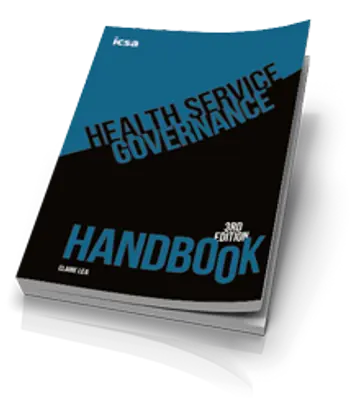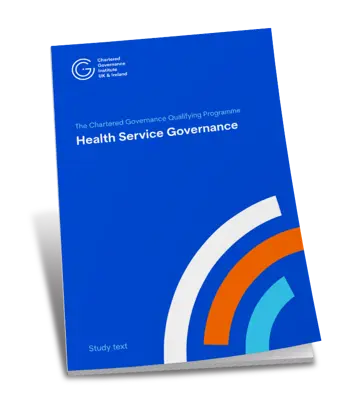
Governance Books
Health Service Governance Handbook, 3rd edition
The Health Service Governance Handbook is the most comprehensive and useful guide in the field of corporate governance in the NHS. It offers vital insight into the corporate governance landscape, exploring the principles and regulatory frameworks of corporate governance and how they relate to the NHS.

Governance Books
Health Service Governance
Designed for those on the journey to becoming a Chartered Governance Professional, our Health Service Governance study text provides the knowledge and skills necessary to act as an adviser to governing bodies across the NHS in England. This includes developing good governance practices for all obligations of NHS organisations in England, covering not only legal duties, but also applicable and recommended standards of best practice.

Governance Books
Charity Handbook, 4th edition
The revised edition of the Charity Handbook includes a wide range of relevant updates and draws on the broad expertise of a leading team of charity specialists.




